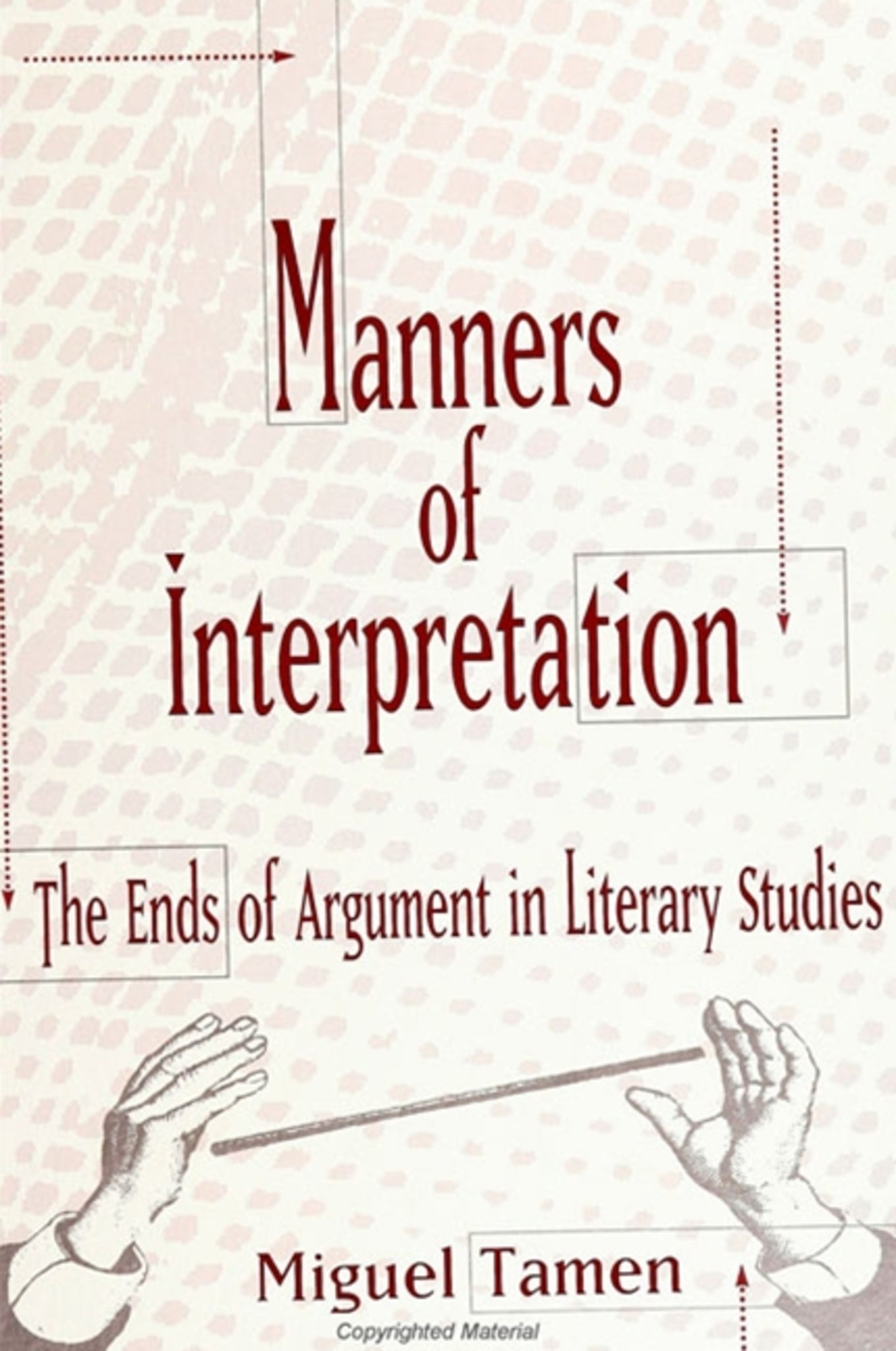We're sorry. An error has occurred
Please cancel or retry.
Manners of Interpretation

Some error occured while loading the Quick View. Please close the Quick View and try reloading the page.
Couldn't load pickup availability
- Format:
-
24 August 1993

Philosophy and literary theory have devoted a great deal of their analysis to the problem of the origin and modalities of argumentation, but there has been an almost total lack of interest in the question of its procedural limits. Manners of Interpretation is an essay on ways of ending interpretations in literary studies as well as on patterns of controversy and consensus in the humanities. Tamen examines two major families of indisputable arguments in post-Enlightenment literary criticism and addresses the question of how one recognizes the proper time to use a given argument, especially and specifically an indisputable argument. The former aim leads to a tentative history of the constitution of literary theory as a set of identifiable ways of using arguments. The latter, meanwhile, points to a theory of argument and controversy and to a contribution to the discussion of human activities that, in spite of not being teachable, are nevertheless learnable. Such a theory seems to be particularly relevant both to the study of the interpretive dimension of literary criticism as it is now practiced and also to the knowledge and description of an area of the humanities that has often been neglected.


"The literary and language theoreticians whom Tamen analyzes, together with the categories he devises in which to contain his discussion of hermeneutics, philology and how each attempts to limit its own potentiality for disagreement with its premises and methods, are all very apt and important to the current debates over literary theory. Over all, Tamen's familiarity with his field, with the original languages of the texts he uses, and his sheer critical intelligence are, well, awesome." — Mili Clark, SUNY Buffalo
Postscript
Acknowledgments
1. The Theoretical Eye
2. The Constitution of the Reading Subject
3. The Appeal to the Author
4. The Best Part of Language
5. Manners of Interpretation and the Ends of Interpretation
Notes
Works Cited
Index



